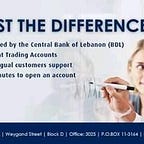8 Reasons Why People Prefer Day Trading Over Long-Term Investing
If you have any experience in buying or selling stocks, commodities, or currency pairs through an online broker, then you are probably aware that many people prefer day trading over investing. In this article, we list out the key reasons why it is so.
What is Day Trading?
Day trading is a method of buying and selling financial instruments within the same trading day. All positions are closed before the market closes, ensuring no positions are left open overnight. Day traders aim to profit from short-term price fluctuations in assets like stocks, Forex, commodities, and Indices. However, this approach requires intense focus, constant market monitoring, and a deep understanding of technical analysis as trades are often opened and closed quickly, usually within minutes or hours.
What is Long-Term Investing?
Long-term investing, on the other hand, involves buying and holding assets for extended periods, often months, years, or even decades. The goal of long-term investing is to gradually build wealth over time, capitalizing on the general upward trend of markets, dividends, and compound interest. This strategy is primarily based on fundamental analysis, which involves assessing an asset’s intrinsic value by looking at financial factors like company earnings, economic indicators, and industry conditions. Long-term investors tend to be less concerned with short-term market fluctuations and more focused on long-term growth potential.
Day Trading vs. Long-Term Investing: Why Many Traders Prefer the Fast Lane
While both day trading and long-term investing are viable ways to participate in the financial markets, some people find day trading more appealing. Let’s take a look at the reasons why day trading has the edge for many market participants.
1. Quick Profits
Day trading is all about making short-term trades, with the intention of profiting from small price fluctuations that occur on that particular day. This rapid turnover of trades means that traders have the opportunity to make profits in a relatively short timeframe, as compared to long-term investing where returns might take months or years to materialize.
2. Control and Flexibility
Day traders like to be in control. Unlike long-term investors, day traders don’t leave their positions open overnight, eliminating the risk of waking up to an unfavorable market shift due to a sudden news or data announcement. Also, day trading provides more flexibility to adapt quickly to changing market conditions throughout the trading day.
3. No ‘Buy and Hold’ Stress
Day traders close all trades before the market shuts down for the day, so they don’t have to worry about sudden price drops or negative news affecting their portfolio overnight. This means less stress about long-term market uncertainties.
4. Excitement and Challenge
Day trading is fast-paced and exciting. It involves constant analysis, decision-making, and adjustment, which can be thrilling for those who enjoy the challenge. There’s never a dull moment in the life of a day trader- it is fast-paced and more suited to people who prefer quick decision-making.
5. Market Accessibility
Thanks to advancements in technology and the availability of online brokerages, individuals can start day trading with a relatively small amount of capital. Furthermore, many markets such as Forex and CFDs are accessible nearly 24/5, making it possible for people to day trade even after getting back from their day job.
6. High Leverage
Many brokers provide high leverage to day traders, usually up to 1:400, which allows them to trade larger positions with a relatively small amount of money. What this means is that, for every $1 you have in your trading account, you can purchase assets worth up to $400. However, please keep in mind that while leverage can amplify losses, it also has the potential to magnify gains.
7. No Long-Term Commitment
Day traders aren’t committed to their trades for the long haul. They can take advantage of both rising and falling markets, and their success isn’t reliant on long-term market trends or the overall health of the economy.
8. Becoming a Full-time Trader
While this isn’t the case for everyone, day trading can potentially become a full-time job. Some people prefer day trading as it can provide more immediate income (when profitable), whereas long-term investments generally aim to build wealth over years or decades.
Conclusion
However, it’s important to remember that day trading is not easy money. It requires a significant amount of time, dedication, and risk management. And like all forms of trading, it carries risk and is not suitable for everyone. But for those who enjoy the fast-paced nature of the markets and have the discipline to stick to a trading strategy, day trading can offer unique advantages over long-term investing.
